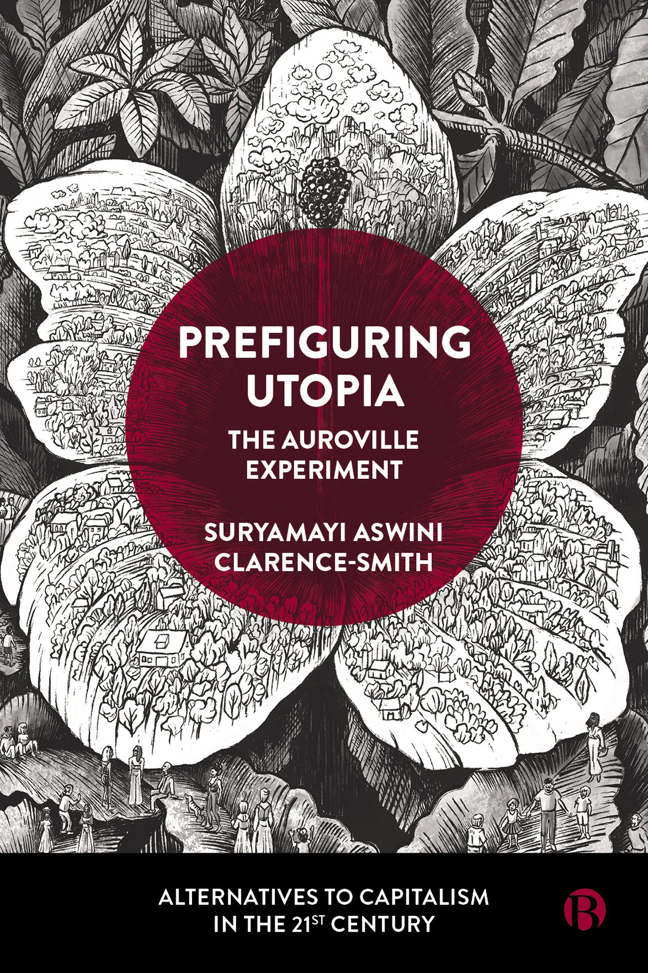Book contents
- Frontmatter
- Dedication
- Contents
- List of Figures and Tables
- Glossary
- About the Author
- Acknowledgements
- Foreword
- 1 All Life is Yoga: An Introduction
- PART I Culture
- PART II Polis
- PART III Economy
- Afterword
- Appendix A A Dream (The Mother, 1954)
- Appendix B The Auroville Charter (The Mother, 1968)
- Appendix C To Be a True Aurovilian (The Mother, 1971)
- Notes
- References
- Index
8 - Auroville and Beyond: The Grounded Hopes and Horizons of Spiritually Prefigurative Practice – A Conclusion
Published online by Cambridge University Press: 24 January 2024
- Frontmatter
- Dedication
- Contents
- List of Figures and Tables
- Glossary
- About the Author
- Acknowledgements
- Foreword
- 1 All Life is Yoga: An Introduction
- PART I Culture
- PART II Polis
- PART III Economy
- Afterword
- Appendix A A Dream (The Mother, 1954)
- Appendix B The Auroville Charter (The Mother, 1968)
- Appendix C To Be a True Aurovilian (The Mother, 1971)
- Notes
- References
- Index
Summary
So what's the point of utopia?
The point is this: to keep walking.
Eduardo Galeano, 1993Asking, we walk.
Zapatista sloganThis autoethnographic exploration of the development of Auroville offers a hopeful insight into the potential of a prefigurative articulation of utopian practice, one in which utopian ideals engage with present conditions in a flexible and reflexive transformative process. Among the key contributions gained from observing this unique project is the revelation that a spiritual quest can underly, strategically articulate and sustain a prefigurative utopian project. The community is not conceptually or practically dissociated from the challenges (and potentialities) of the conditions in which it is embedded – social, political, economic and environmental – but predicates itself on the incorporation of these challenges by virtue of a spiritual world view that seeks out their transformation. I find that the lens of prefiguration is particularly adapted to understanding this world view and the utopian practice that arises from it given that it is not a fixed utopian vision of the future but an evolutionary process to be engaged through praxis – an experience that may be shared by other spiritual or a-spiritual groups.
Davina Cooper (2017) highlights that prefigurative conceptualization, just like prefigurative practice, must be both reflexive and provisional. Each are key to an ongoing, evolutionary praxis of utopianism – particularly in an established ‘alternative’ society such as Auroville, whose experimental nature risks waning over time – because they enable such praxis to be engaged in a learning process. This process of learning – what The Auroville Charter describes as ‘unending education’ (The Mother, 1968) – is related not only to understanding what works or does not work in terms of the practical application of utopian ideals but also, as both the utopian philosopher Ernst Bloch and utopian social theorist Ruth Levitas have highlighted, to the very nature of utopianism itself. Bloch (1986: 3) described it as ‘learning hope’, Levitas (2013) as the education of desire for a better way of life and The Mother as a ‘thirst for progress’ (quoted in Satprem, 1981: 65). For The Mother, both the thirst and the progress were of a spiritual nature, which Ruth Levitas (2013: 13) suggests is central to utopianism itself: ‘If Utopia is understood as the expression of the desire for a better way of being, then it is perhaps a (sometimes) secularised version of the spiritual quest.’
- Type
- Chapter
- Information
- Prefiguring UtopiaThe Auroville Experiment, pp. 146 - 150Publisher: Bristol University PressPrint publication year: 2023



